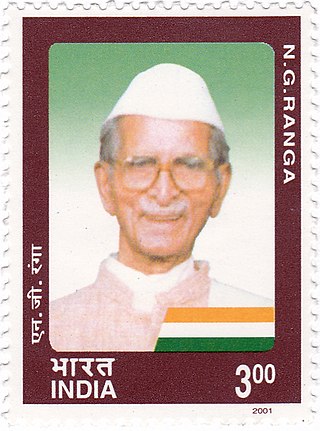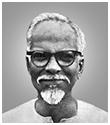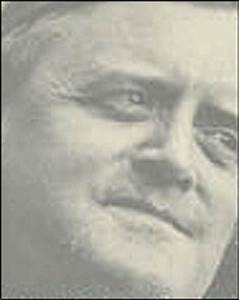Related Research Articles

Vinayak Narahari Bhave, also known as Vinoba Bhave, was an Indian advocate of nonviolence and human rights. Often called Acharya, he is best known for the Bhoodan Movement. He is considered as National Teacher of India and the spiritual successor of Mahatma Gandhi. He was an eminent philosopher. The Gita has been translated into the Marathi language by him with the title Geetai.

Gadchiroli district is an administrative district in Maharashtra, India. The city of Gadchiroli is the administrative headquarters of the district.

Mahasweta Devi was an Indian writer in Bengali and an activist. Her notable literary works include Hajar Churashir Maa, Rudali, and Aranyer Adhikar. She was a leftist who worked for the rights and empowerment of the tribal people of West Bengal, Bihar, Madhya Pradesh and Chhattisgarh states of India. She was honoured with various literary awards such as the Sahitya Akademi Award, Jnanpith Award and Ramon Magsaysay Award along with India's civilian awards Padma Shri and Padma Vibhushan.

The Adivasi refers to heterogeneous tribal groups across the Indian subcontinent. The term is a Sanskrit word coined in the 1930s by political activists to give the tribal people an indigenous identity by claiming an indigenous origin. The term is also used for ethnic minorities, such as Chakmas of Bangladesh, Bhumiputara Khasas of Nepal, and Vedda of Sri Lanka. The Constitution of India does not use the word Adivasi, instead referring to Scheduled Tribes and Janjati. The government of India does not officially recognise tribes as indigenous people. The country ratified the International Labour Organization (ILO) Convention 107 on Indigenous and Tribal Peoples of the United Nations (1957) and refused to sign the ILO Convention 169. Most of these groups are included in the Scheduled Tribe category under constitutional provisions in India.

Raj Narain was an Indian freedom fighter and politician. He won in a famous electoral malpractice case against the then Prime Minister Indira Gandhi, which led to her disqualification and imposition of Emergency in India in 1975. He defeated Indira Gandhi during the 1977 Lok Sabha elections.

Gogineni Ranga Nayukulu, also known as N. G. Ranga, was an Indian freedom fighter, classical liberal, parliamentarian and farmers' leader. He was the founding president of the Swatantra Party, and an exponent of the peasant philosophy. He received the Padma Vibhushan award for his contributions to the Peasant Movement. N.G. Ranga served in the Indian Parliament for six decades, from 1930 to 1991.

Malati Devi Choudhury was an Indian civil rights and freedom activist and Gandhian. She was born in 1904 in an upper middle class Brahmo family. She was the daughter of Barrister Kumud Nath Sen, whom she had lost when she was only two and a half years old, and Snehalata Sen, who brought her up.
Manikya Lal Verma was a member of Constituent Assembly of India in 1949. He was prime minister of Rajasthan, India before full formation of the state. He was elected to Lok Sabha in 1957 from Chittorgarh and in 1952 from Tonk. He was recipient of Padma Bhushan in 1965.

Nabakrushna Choudhuri was an Indian politician and activist. He served as Chief Minister of the Indian state of Odisha. He was a freedom fighter who participated in the Non-cooperation Movement, the Civil Disobedience movement, and the Peasants movement.

Harry Verrier Holman Elwin was a British-born Indian anthropologist, ethnologist and tribal activist, who began his career in India as a Christian missionary. He first abandoned the clergy, to work with Mahatma Gandhi and the Indian National Congress, then converted to Hinduism in 1935 after staying in a Gandhian ashram, and split with the nationalists over what he felt was an overhasty process of transformation and assimilation for the tribals. Verrier Elwin is best known for his early work with the Baigas and Gonds of Orissa and Madhya Pradesh in central India, and he married a 13 year old member of one of the communities he studied. He later also worked on the tribals of several North East Indian states especially North-East Frontier Agency (NEFA) and settled in Shillong, the hill capital of Meghalaya.

Chandi Prasad Bhatt is an Indian Gandhian environmentalist and social activist, who founded Dasholi Gram Swarajya Sangh (DGSS) in Gopeshwar in 1964, which later became a mother-organization to the Chipko Movement, in which he was one of the pioneers, and for which he was awarded the Ramon Magsaysay Award for Community Leadership in 1982, followed by the Padma Bhushan in 2005.
Adi Dharm refers to the religion of Adi Brahmo Samaj the first development of Brahmoism and includes those Sadharan Brahmo Samajists who were reintegrated into Brahmoism after the second schism of 1878 at the instance of Hemendranath Tagore. This was the first organised casteless movement in British India and reverberated from its heart of Bengal to Assam, Bombay State, Punjab and Madras, Hyderabad, and Bangalore.

Mohan Dharia was a Union minister, a lawyer and social worker. During his last days he stayed in Pune. Dharia was an environmentalist and ran a non-government organisation Vanarai. He was elected to the Lok Sabha twice from Pune Lok Sabha constituency, first in 1971 as an Indian National Congress (INC) member and became a Minister of State, and later in 1977 as a Bharatiya Lok Dal member, and joined the Morarji Desai Ministry as Union Minister of Commerce. Prior to it, he remained member of the Rajya Sabha twice from INC, first 1964-1970 and then 1970- 1971
Kranti Shah is the Founder, Director and Managing Trustee of Yuvak Biradari (Bharat) which is a voluntary, social, educational, cultural and youth movement of India. He has championed the cause of social welfare and youth development since 1974.
Gutta Muniratnam was an Indian social worker, a member of the National Planning Commission of India and the founder of Rashtriya Seva Samithi (RASS), a non governmental organization engaged in the social welfare activities in over 2500 socio-economically backward villages in the Rayalaseema region, spread across the present day states of Andhra Pradesh and Telangana. He was honored by the Government of India, in 2012, with the fourth highest Indian civilian award of Padma Shri.
Neelamani Devi is an Indian craftswoman and master potter from Manipur. Her creations have been the theme of two documentary films; Mittee aur Manab by renowned filmmaker, Mani Kaul, and Nilamani: The Master Potter of Manipur, by Aribam Syam Sharma. The TV Series, Mahabharata also featured her works on one of the episodes. The Government of India awarded her the fourth highest civilian honour of the Padma Shri, in 2007, for her contributions to the art of pottery making.
Damodar Ganesh Bapat was an Indian social worker known for his service to the leprosy patients at Bhartiya Kushta Nivarak Sangh (BKNS) in Janjgir–Champa district, Chhattisgarh, India. In 2018, the Government of India awarded him the Padma Shri, India's fourth highest civilian award, in recognition of his social work. He was also awarded the Chhattisgarh Rajya Alankar by the state of Chhattisgarh.
Muktaben Pankajkumar Dagli is a social worker from Gujarat, India. She works for blind and disabled people and associated with several organisations. She was awarded the Padma Shri in 2019.
Ram Narayan Chaudhary was a Gandhian social reformer, anti-colonial nationalist, writer, and publisher, from Rajasthan in India who contributed over three decades of his life to the Indian independence movement.

Pushpa Janardanrai Mehta, also known as Pushpaben Mehta, was an Indian social worker and politician from Gujarat. She founded and headed several women and child welfare organisations in Ahmedabad and Saurashtra region. She served as the member of legislative assemblies of Saurashtra, Bombay and Gujarat states consecutively from 1952 to 1962. She served as the member of Rajya Sabha from 1966 to 1972. She was awarded the Padma Bhushan in 1956.
References
- ↑ Tribal Freedom Fighters of India. Publications Division Ministry of Information & Broadcasting. 30 August 2017. ISBN 9788123025216.
- 1 2 "CM Releases Book on Padmashree Rajmohini Devi". Daily Pioneer. 2 May 2013. Retrieved 2 September 2015.
- 1 2 3 Stephen Fuchs. "Messianic Movements in Primitive India". NIRC.
- ↑ K N Dash (2004). Invitation to Social and Cultural Anthropology. Atlantic Publishers. p. 421. ISBN 9788126903238.
- ↑ Virginius Xaxa (2008). State, Society, and Tribes: Issues in Post-colonial India. Pearson Education India. p. 131. ISBN 9788131721223.
- ↑ "Padma Awards" (PDF). Ministry of Home Affairs, Government of India. 2015. Retrieved 21 July 2015.
- ↑ "Raj Mohini Devi College of Agriculture and Research Station". Indira Gandhi Agricultural University. 2015. Retrieved 2 September 2015.
- ↑ "Rajmohini Devi PG Girls College". Rajmohini Devi PG Girls College. 2015. Retrieved 2 September 2015.